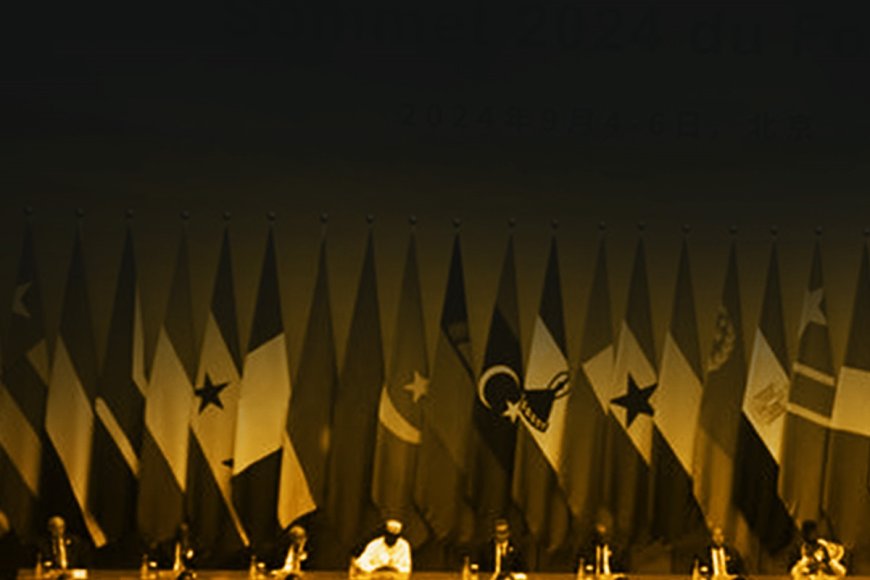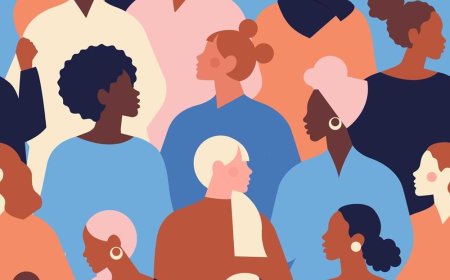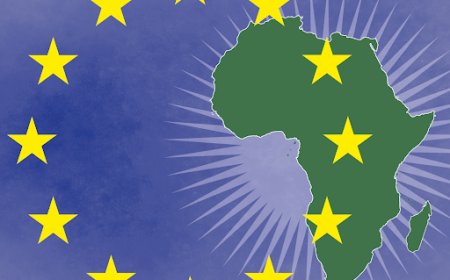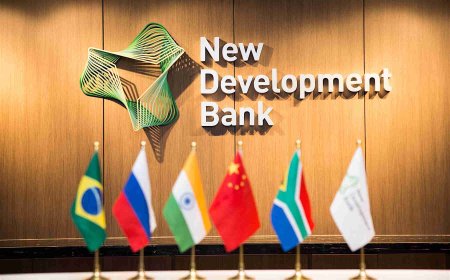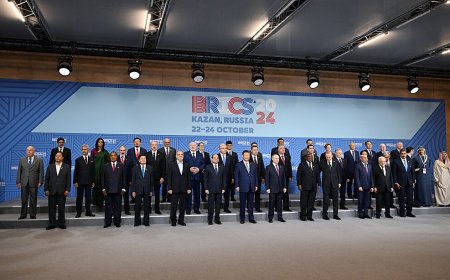Summary
- China-Africa relations have been on a downward trajectory in recent years, and expectations for the 2024 Forum on China-Africa Cooperation (FOCAC) Summit in terms of economic incentives were initially low; a turn-out 51 African heads of state and government however inspired optimism
- FOCAC has historically been seen as dominated by China’s economic interests, but Africa remains a crucial partner by providing resources and both parties benefit from mutual development goals and influence in global governance, including China’s backing of the AU’s membership in the G20
- Key concerns in the run-up to the Summit were China’s slowing growth, reduced investments in Africa, debt concerns and geopolitical uncertainties, with African expectations around more balanced trade, job creation and political support being voiced throughout the convening
- One of the major outcomes following the Summit is China’s financial commitment of USD 50.7 billion over the next three years, and a pledge to consolidate gains in agriculture, industry, technology, trade and investments
- Overall, the Summit elevated the China-Africa relationship on several fronts and will likely push the EU to recalibrate its approach to Africa’s development priorities
Introduction
As the dust settles after the ninth Forum on China-Africa Cooperation (FOCAC) Beijing Summit, the Afro-Sino relationship is under intense scrutiny. Speculation was rife that there was ‘fatigue’ around the Africa+1 summits that, despite their number, have had limited impact. China-Africa relations have followed a downward trajectory in recent years, and little was expected from this year’s FOCAC in terms of the economic incentives that have shaped the relationship for the last 24 years. According to research by Boston University’s Global Development Policy Center, lending has fallen consistently since 2016 and only rose marginally last year to levels that are far less than commitments to the continent pre-pandemic. Investments and loan commitments have declined since 2017; FOCAC commitments fell from USD 60 billion in 2015 and 2018 to USD 40 billion in 2021. However, the huge turnout by over 50 African heads of state and government highlighted Africa’s enthusiasm and optimism regarding the future of FOCAC. The forum did not disappoint: Unlike the FOCAC 2021 ministerial meeting in Dakar, Senegal, which suggested a 'retrenchment’ from Africa, the outcomes of FOCAC 2024 hint at a re-calibration of China-Africa relations. This essay presents an Afrocentric analysis of the meeting and its implications for the EU and Germany.
FOCAC and its significance in Africa-China relations
The official FOCAC website describes the forum as a consultation mechanism for ‘equal consultation, enhancing understanding, expanding consensus, strengthening friendship and promoting cooperation’. Chinese and African leaders see it as a multilateral, geopolitical entity serving their development and political agenda. FOCAC is the culmination of the Afro-Asian solidarity movement that begun with the Bandung conference in 1955, which set forth the idea of South-South cooperation and a common front against neo-colonial hegemonic domination. More recently, the platform has been asserting China’s position as a leader of the Global South with Africa’s endorsement of China’s global ambitions. An examination of the nine FOCAC meetings in the last two and a half decades confirms an aggregated assertion towards reforming the western-led order and a clamour for a fair and just order where respect for national sovereignty and the principle of non-interference in the internal affairs of other nations are key themes.
While FOCAC was officially launched in 2000, its origins can be traced to Chinese President Jiang Zemin’s 1996 visit to Kenya, Ethiopia, Egypt, Mali, Namibia and Zimbabwe, when he publicly unveiled a new and emerging Chinese approach to Africa. His key message was China’s desire to strengthen solidarity and cooperation with African countries. In his keynote speech at the Organization of African Unity (OAU), titled ‘Toward a new historical milestone of Sino-African friendship’, Zemin laid bare China’s vision of a formal mechanism for cooperation with Africa. The proposal contained five points: fostering a sincere friendship between China and Africa; being each other’s reliable ‘all-weather friend’; treating each other as equals and respecting each other’s sovereignty by not interfering in each other’s internal affairs; seeking common development on the basis of mutual benefit; enhancing consultation and cooperation in international affairs; and looking into the future seeking to create a better world. The proposal was warmly received at the OAU and contributes to the founding principles of FOCAC (Taylor 2010).
The China-centric nature of FOCAC is often emphasised, where China is perceived as an instrument of Chinese economic policy in Africa. These perceptions put China in command of FOCAC’s agenda, while downplaying Africa’s agency in the arrangement. The perception is that it is China which, through its financial capacity, invests in Africa by making promises and implementing projects throughout the continent for its own interests. However, while there is an obvious asymmetry between China and Africa in FOCAC, Africa represents an important ally, providing resources for China’s economic growth as well as political and diplomatic support for its global geopolitical agenda. China appreciates the opportunities that Africa’s collective action could bring to the international system, thus shaping global governance and norms in China’s favour, while Africa acknowledges the benefits of having a development partner and diplomatic ally in international institutions. China’s backing of Africa’s role in global governance and support for the African Union’s membership in the G-20 is critical for advancing Africa’s interests and priorities internationally. It would therefore be imprudent to neglect the Afrocentric perception of FOCAC and the motivations behind Africa’s openness to the summit.
FOCAC has been more focused on Africa’s concerted efforts to try to shift from unbalanced, colonial-style economic relationships towards those formed by equals. This view was vividly expressed at the sidelines of the 2015 FOCAC Summit in Johannesburg, South Africa. Mr. Ghulam Asmal, the director of NEPAD (the New Partnership for Africa's Development), was asked if he expected President Xi to announce a new major aid package for Africa. He responded by saying, ‘we have to get out of that mode of “What can Africa get from a relationship?”’ He emphasised his disapproval: ‘It is not about what we can get. It is what we put in, we will get. And we will get what we ask for. And what we are asking for is development and socio-economic upliftment”’. These sentiments resonate with African leaders and policy makers across the continent. At the latest FOCAC Summit in Beijing, South Africa’s president, Cyril Ramaphosa, maintained, ‘we are driven by a desire to achieve shared prosperity while recognising our individual developmental aspirations. China has a long history of friendship and solidarity with the people of Africa. This fourth FOCAC Summit reflects the cooperative, comprehensive and intentional nature of our cooperation’. Nigeria’s Bola Tinubu, who is also the ECOWAS president, described the Africa-China relationship as one that has yielded strategic engagement and a shared vision for growth: ‘At the heart of China-African relations is a foundation built on trust, mutual respect and the pursuit of common goals. As we look to the future, it is crucial that we maintain momentum, peaceful dialogue and transparent business practices’.
Context of the ninth FOCAC Beijing Summit
The three years leading up to the FOCAC 2024 Summit have been dominated by concerns over China’s slowing growth, reduced investments in Africa, debt concerns and a myriad of challenges facing Africa-China relations, including trade imbalances, the green energy transition, technological transfer and geopolitical uncertainties. FOCAC 2024 also took place just as China’s foreign policy is shifting in response to prevailing geopolitical dynamics, such as competition for critical mineral supply chains. The forum could not have come at a better time, allaying as it does the fears of detachment that arose at the last FOCAC meeting in 2021, when financial commitments fell from the USD 60 billion pledged in both 2015 and 2018 to USD 40 billion; committed projects in agricultural assistance, climate and environment, health, peace and security and trade promotion fell from 50 projects to 10 projects in each category; and education training projects fell from 50,000 government scholarships to 10,000 training and seminar programmes reserved for high-end talents. The summit also occurred at a time when there is renewed interest in Africa from the west and emerging economies across the globe. The Partnership for Global Infrastructure and Investment (formerly Build back Better World B3W) are widely seen in Africa as counters to the influence of China’s Belt and Road Initiative (BRI) on the continent. Moreover, there is a proliferation of Africa+1 summits: The Korea-Africa Summit, Russia–Africa Summit, Turkey-Africa Partnership Summit have joined a growing list including the India-Africa Forum Summit (IAFS) and the Tokyo International Conference on African Development TICAD. Therefore, the ninth summit was an opportunity to consolidate FOCAC as the most significant and impactful forum for engagement with African countries.
While FOCAC has existed for 24 years, the ninth FOCAC Beijing Summit was unique in several ways. First, there was a sense of increased agency from the African leaders who seemed to emphasise quality rather than quantity in terms of outcomes. The advocacy for balanced trade, value addition, job creation and political and diplomatic support was more prominent, suggesting that African leaders and policy makers are exploring innovative ways to ensure that win-win rhetoric and political solidarity is demonstrated in actual programmes. Secondly, the ninth summit had a new format where China and an African country co-chaired discussions around thematic committees. This created room for coordination among African negotiators around issues of common concern, which will go a long way in enhancing the efficiency and smooth implementation of cross-border and regional projects and programmes. For example, the deal on the refurbishment of the Tazara railway involving Angola, Zambia and Tanzania reflects the necessity and power of collaboration between countries to achieve better regional outcomes. One of the reasons why the Kenyan Standard Guage Railway (SGR) rail project had stalled was a lack of proper coordination between the East African countries. For instance, Uganda switched positions, opting to connect its SGR to Tanzania’s network instead of Kenya’s, throwing the regional project in disarray. After new agreements were signed between East African member states of Kenya, Uganda, Rwanda, South Sudan and the Democratic Republic of Congo, it is alleged that China is prepared to co-fund the project to the Uganda border.
FOCAC 2024 also came at a time when China is adapting a more assertive foreign policy. The demonisation of China in the aftermath of Covid-19; the US’ anti-China trade and industrial policies, such as the CHIPS and Science Act and the Inflation Reduction Act; and Europe’s tariff barriers have forced China to take a more assertive geopolitical posture. China is showing a greater determination to pursue ‘modernisation’ with a primary focus on the Global South, particularly alternative markets and global governance in Africa. This suggests the end of former Chinese leader Deng Xiaoping’s mantra of ‘hiding strength and biding time’ while ‘maintaining a low profile’, and the beginning of a more active leadership role in global affairs. President Xi is calling for China to ‘be proactive, achieve things, and dare to struggle’: ‘Time and momentum are on our side’.
Seeking to build Global South consensus based on its vision of global governance, China has already established three initiatives to guide the country’s role in the Global South: The Global Development Initiative, the Global Security Initiative and the Global Civilization Initiative. These are China’s answer to the future of the international order and have become core elements of China’s foreign policy. The initiatives were emphasised during the ninth FOCAC Summit, and represent a refreshed drive towards China’s strategic global ambitions as well as Africa’s desperate need for more collaborative and impactful development and security partnerships. Most African countries are already in alignment.
African expectations in the run-up to the ninth FOCAC Beijing Summit 2024
The ninth FOCAC Beijing Summit 2024 came at a critical juncture in the Africa-China relationship. It was clear from the onset that African leaders would not just ask for trade and investments. Their expectations were better defined than ever before, as evidenced by their determination to integrate Africa into value chains and advance quality technological transfer, green energy and sustainable cooperation. In recent years, the balance of trade between China and Africa has been a contentious topic and has gained a lot of traction. Many African leaders and policy makers are now prioritising the potential of Africa to become China’s primary agricultural exporter due to its abundance of arable land and value addition of agricultural products and minerals. In his China visit days before FOCAC, South Africa’s President Cyril Ramaphosa expressed that ‘there is an imbalance in our trade structure’ and said that he would like to see more value-added products entering the Chinese market. Pressure has been piling on China to shift from exporting raw materials to establishing refining and processing plants at source. Zimbabwe’s push for Chinese companies to refine lithium within the country has prompted calls for a replication of similar arrangements in other countries and sectors. For instance, Benin is considering banning the export of raw cashew nuts in hopes of encouraging processing and value addition at home.
Strengthening partnerships towards achieving Africa’s agenda 2063 development goals was also emphasised at FOCAC 2024, when Ramaphosa stated: ‘We believe that FOCAC is a valuable forum to support the implementation of the African Union’s Agenda 2063. These goals are expected to be achieved through the pursuit of regional projects across national borders with the implementation of the African Continental Free Trade Area in mind’. Despite the economic slowdown in China and reduced financial commitments due to a heavy debt burden on some African countries, African leaders remained hopeful and emphasised the need for innovative ways to finance development projects and maintain economic commitments to strengthen and sustain Sino-Africa relations. Tanzania’s President Samia Suluhu lauded China’s support of Africa, stating that ‘despite the economic challenges posed by the Covid-19 pandemic, China has remained committed to fulfilling its pledges’. Kenya’s President William Ruto had infrastructure financing at the top of an agenda including the extension of the SGR to Uganda’s border in Malaba, construction of rural roads, a water dam and investments in the healthcare and tech sectors.
In recent years, African leaders have called for greater involvement of China in the security sector. So far, this has been limited by China’s non-interference policy. There is a belief that China can play a more prominent role in the security situation, particularly in West Africa and the Sahel region where anti-western sentiments are growing. The tenth partnership action for common security suggests that China will employ a more strategic approach in the security sector in the next three years as it implements its Global Security Initiative (GSI). It states that ‘China is ready to build with Africa a partnership for implementing the GSI, and make it a fine example of GSI cooperation. We will give Africa RMB 1 billion yuan of grants in military assistance, provide training for 6,000 military personnel and 1,000 police and law enforcement officers from Africa, and invite 500 young African military officers to visit China. The two sides will conduct joint military exercises, training and patrols, carry out an [action for a mine-free Africa], and jointly ensure the safety of personnel and projects’.
Key developments at the ninth FOCAC Beijing Summit 2024
Living up to its billing as the biggest and most significant multilateral forum for African leaders, and as a testament to China’s place in Africa’s diplomacy, the ninth FOCAC Beijing Summit meeting was attended by 51 African heads of state and government, two presidential representatives and the chairperson of the African Union Commission. African leaders prioritise FOCAC for its immediate and tangible economic and political benefits that align with their interests and priorities. Predictably, most of the issues and priorities raised by African leaders found their way into the Beijing action plan (2025-2027).
Against all expectations, China made a financial commitment of USD 50.7 billion over the next three years, and pledged to consolidate gains in agriculture, industry, technology, trade and investments. China also agreed to import more agricultural products from Africa and encourage Chinese companies to invest in mineral processing in African countries. At the multilateral level, issues of common interest like trade imbalance, technology and green energy cooperation, governance, and security ties were considered and commitments made. These include China’s commitment to expand its market access for African agricultural products; foster industrial cooperation through digital technology cooperation, green energy development, security cooperation through military aid and personnel training; and improve party links and governance training. Bilateral gains include Kenya’s USD 281 million financing for the construction and completion of rural roads, Nigeria’s deal to export peanuts, the DRC’S deal for solar PV power plants to be constructed by Chinese companies and Zimbabwe’s deal to export avocados as part of an emerging trend where more and more African agricultural products gain access to the Chinese market.
These practical, tangible outcomes cover a broad spectrum of African priorities and cast China as a more responsive and intentional development partner. This does not mean that Africa gets everything it asks for, but it highlights the utility of FOCAC as a multilateral forum that responds to Africa’s needs and priorities. While debt remains a concern for some African countries, debt relief or restructuring deals were absent from FOCAC. This is probably because debt is understood to be a country-specific concern rather than a continent-wide problem that could be addressed bilaterally. In fact, African policy makers have rejected the ‘debt trap’ narrative in totality.
The most significant MoU was between China and Tanzania on a USD 1 billion plan to rehabilitate the aforementioned Tazara railway, which connects Zambia’s copper belt region to the Tanzanian port of Dar es Salaam. This deal is geopolitically significant for both China and Africa. Coming at a time when the United States has pledged to renovate the Lobito Atlantic railway connecting mineral rich Zambia and the DRC to the Port of Lobito in Angola, the Tazara railway represents China’s commitments to the BRI and access to critical minerals. For African leaders, it represents a positive step towards the African Union’s infrastructure goal to connect Africa from East to West and North to South, thus promoting intra-African trade and setting the stage for the Africa Continental Free Trade area. Nigeria’s President Bola Tinubu affirmed the role of China’s BRI infrastructure projects in promoting intra-Africa trade. He said ‘China’s BRI aligns with Africa’s own infrastructure goals under the African Continental Free Trade Agreement’.
Implications for China-Africa and Africa-EU-Germany relations
The ninth FOCAC Beijing Summit 2024 saw the elevation of China-Africa relations to an ‘all-weather community with a shared future for the new era’.This hierarchical approach to bilateral relations determines the degree and depth of cooperation between China and its partners. Strategically, the terms ‘comprehensive’, ‘all-weather’ or ‘strategic’ have symbolic significance and accord higher expectations in the partnerships. For instance, ‘strategic’ indicates a higher level of political relations that require coordination and cooperation in international affairs. This will potentially strengthen and add depth to existing areas of cooperation, further consolidating China’s geostrategic economic interests on the continent. The calls for global reforms and South-South cooperation are essentially meant to reduce western influence on the continent in China’s favour. This influence spans political values, infrastructure contracting and technological uptake. For instance, China’s Huawei has made substantial investments in 5G and digital networks, dominating and replacing western firms in Africa’s digital space who have to contend with limited state support and little room for partnerships and cooperation.
While some analysts downplay the zero-sum mentality already exhibited in the geopolitical competition for influence in Africa, the anti-China rhetoric from the West and the anti-Western rhetoric from China suggest a widening ideological divide pitting the West against China in Africa, so that Africa has to choose one or the other. For instance, Xi Jinping criticised the western approach to modernisation, blaming it for inflicting ‘historical injustices and immense suffering on developing countries’. These sentiments are gaining traction and fuelling anti-western sentiments across Africa. China’s new strategy in Africa involves the export of relevant elements of its economic and political governance model that some African leaders find inspirational and a welcome contrast to the supposed failures of the liberal democratic path. The three-year plan to build a platform for governance experience and leadership academies, while deepening the exchange between political parties, will possibly strengthen China’s alternative model to democracy in Africa. Moreover, the push for the implementation of China’s Global Development Initiative (GDI), Global Security Initiative (GSI) and the Global Civilization Initiative (GCI) is aimed at reforming the western-led order and entrenching China’s leadership in global governance while eroding western influence in Africa. China’s ‘neo-colonial’ narrative and alternative governance model has been blamed for democratic backsliding in some African countries.
The consolidation of political and economic ties means that in the face of intensifying rivalry and competition, African countries are more likely to choose Chinese companies and technology over western and German rivals. China is aggressively courting the African market for its technology and green energy products. By implementing several green energy projects across Africa, and as Chinese companies enter the market with affordable Chinese electric vehicles (EVs) appealing to African consumers, China has set the pace for Africa’s green energy transition and EV market. Unlike in Europe and the US, where Chinese tech and green energy products, particularly EVs, are facing heavy tariffs, several African countries are promoting Chinese EVs to the extent that they are reducing import tariffs or eliminating them altogether, handing China what Europe considers an unfair competitive advantage. While Africa may be a short-term solution for Chinese EVs, so long as the profitable EU market is limited, any potential growth in Africa represents marginal and cumulative gains for China in the long run. The African EV market is predicted to reach USD 21.4 billion by 2027 and to grow exponentially. If this trend continues, it is just a matter of time before European and German carmakers lose their market share in Africa.
Overall, FOCAC displayed African countries’ enthusiasm and commitment towards the consolidation of bilateral and multilateral relations with China. Multilateralism featured in FOCAC discussions with China, drawing parallels with European modernisation. African leaders are bound to compare China’s FOCAC against other partnership forums like the EU-Africa Summit and to prioritise those which offer the most utility. The difference in depth of outcomes between the EU-Africa 2022 Summit and the FOCAC 2024 Beijing Summit suggest that African leaders prioritise FOCAC as the more impactful and responsive partnership, with rhetoric around equality and respect that favour China’s geopolitical interests over the EU. While there have been arguments denying the zero-sum mentality in competition for influence in Africa, there is little to show in terms of cooperation between the EU and China in Africa. Africa therefore increasingly faces a binary of western- and Chinese-led perspectives, each of which portrays the other as an adversary on the African stage. Moreover, this rhetoric casts doubt on the intentions of EU initiatives such as the Global gateway that are widely considered as attempts to contain Chinese influence in Africa rather than genuine efforts towards meeting African needs and priorities.
Lessons and recommendations
The key lessons from the ninth FOCAC Beijing Summit is that Africa is keen on substantive partnerships that serve its development priorities. The rise of China and other emerging economies means that Africa will align with forums and countries where it gets the most utility in terms of development cooperation and diplomatic support. The EU will need to compete or complement what China is doing by aligning with Africa’s needs and development priorities. These include industrialisation, technological transfer, fair trade, green energy and respect for African voices in the international arena. There is more than enough room for both China and the EU in Africa. Thus rather than criticising and engaging in divisive rhetoric over what China is doing in Africa, the EU could also recalibrate its relations with Africa in radically different ways. It needs to address its imperialist label and demonstrate a more responsive approach to Africa policy rather than the prescriptive and domineering strategies it is associated with. Finally, just as at the last FOCAC, China intimated its desire for a private sector-led investments in Africa, the EU should use its advantage in this area to compete, collaborate and contribute positively towards Africa’s development agenda.
About the author
Dr. Cliff Mboya
Dr. Cliff Mboya is an Africa-China analyst. His research interests include Geopolitics and Public diplomacy (Belt and Road Initiative, FOCAC, BRICS). He is currently a Postdoctoral researcher at the Centre for Africa-China studies (CACS) at the University of Johannesburg.
